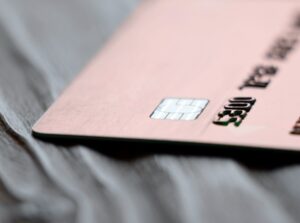What is a Crypto Address?
A crypto address, also known as a wallet address, is a unique alphanumeric identifier used to send and receive cryptocurrencies. Much like an email address, a crypto address serves as a destination for digital currency transactions. Understanding what a crypto address is and how it functions is crucial for anyone involved in the world of cryptocurrency.
Definition and Basic Concept
In essence, a crypto wallet address is a string of letters and numbers that represents a specific location on a blockchain network. Each address is unique and is derived from a complex mathematical algorithm. When someone wants to send you cryptocurrency, they need your wallet address to direct the funds to the correct destination.
How Crypto Addresses Work
Crypto addresses work in tandem with public and private keys. A public key is used to generate your wallet address, which can be shared with others to receive funds. On the other hand, a private key is like a password that grants access to your crypto holdings. It’s crucial to keep your private key secure, as anyone who obtains it can control the funds associated with your address.
Types of Crypto Addresses
Different cryptocurrencies use distinct address formats, making it important to use the correct type of address when conducting transactions. Let’s explore some of the most common types of crypto addresses.
Bitcoin Addresses
Bitcoin, the world’s first and most widely recognized cryptocurrency, uses several address formats. The most common ones start with a “1”, “3”, or “bc1”. These different prefixes indicate the type of transaction the address is intended for, such as a standard payment or a multi-signature transaction.
Ethereum Addresses
Ethereum, the second-largest cryptocurrency by market cap, uses a different address format than Bitcoin. Ethereum addresses always start with “0x” and are followed by a string of 40 hexadecimal characters. This address format is used for both sending and receiving Ether (ETH), as well as for interacting with smart contracts on the Ethereum blockchain.
Other Cryptocurrency Addresses
Other popular cryptocurrencies, such as Litecoin and Dogecoin, also have their own unique address formats. For example:
- Litecoin addresses typically start with an “L”, followed by a string of alphanumeric characters.
- Dogecoin addresses usually begin with a capital “D” and contain 34 characters.
It’s essential to use the correct address format for the specific cryptocurrency you’re dealing with to avoid potential transaction issues or loss of funds.
The Importance of Crypto Addresses
Crypto addresses play a vital role in the functioning of cryptocurrencies and blockchain technology. Let’s examine their significance in more detail.
Role in Transactions
Crypto addresses are fundamental to conducting transactions on a blockchain network. When you want to send or receive cryptocurrency, you need to provide a wallet address as the destination or source of the funds. The blockchain network then records the transaction, ensuring that the correct amount of cryptocurrency is transferred between the specified addresses.
Security Implications
The security of your crypto holdings largely depends on the protection of your wallet address and its associated private key. If someone gains access to your private key, they can control the funds linked to your address. Therefore, it’s crucial to follow best security practices, such as keeping your private key offline and never sharing it with anyone.
How to Create and Manage a Crypto Address
Creating and managing a crypto address is relatively straightforward, thanks to the various wallet solutions available. Here’s a brief overview of the process.
Creating a Crypto Address
To create a crypto address, you’ll need to set up a cryptocurrency wallet. There are several types of wallets, including software wallets (desktop, mobile, or web-based) and hardware wallets (physical devices). Once you’ve chosen and installed a wallet, it will automatically generate a unique address for you to use.
Managing Your Crypto Address
Managing your crypto address involves keeping track of your transactions and ensuring the security of your funds. Most wallets provide a user-friendly interface that allows you to view your transaction history, current balance, and other relevant information. It’s important to regularly update your wallet software and follow recommended security practices to safeguard your crypto holdings.
Security Tips for Crypto Addresses
Given the decentralized nature of cryptocurrencies, security is paramount when dealing with crypto addresses. Here are some essential tips to help protect your funds.
Protecting Your Private Key
As mentioned earlier, your private key is the most critical piece of information related to your crypto address. Here are some best practices for keeping it secure:
- Never share your private key with anyone, as this would give them full control over your funds.
- Store your private key offline, either by writing it down on paper or using a hardware wallet.
- Encrypt your private key with a strong password if you must store it digitally.
Avoiding Scams and Fraud
The cryptocurrency space is not immune to scams and fraudulent activities. One common scheme is known as an “address poisoning scam,” where a malicious actor provides a fake wallet address that resembles a legitimate one, tricking users into sending funds to the wrong destination. To protect yourself:
- Always double-check the wallet address before sending funds.
- Be cautious of unsolicited messages or requests related to your crypto holdings.
- Use reputable wallets and exchanges to minimize the risk of phishing attacks or malware.
Future Developments in Crypto Addresses
As blockchain technology continues to evolve, so do the ways in which we interact with crypto addresses. Here are some potential developments that could shape the future of crypto addresses.
Simplifying Addresses with Wallet Name Services
One of the challenges of using crypto addresses is their lengthy and complex format. Wallet Name Services aim to simplify this by allowing users to associate their wallet address with a human-readable name, similar to how domain names work for websites. This could make it easier for users to share and remember their wallet addresses.
The Role of QR Codes
QR codes have become increasingly popular as a way to quickly and easily share information, including crypto addresses. Many wallets now feature built-in QR code scanners, allowing users to instantly capture a wallet address without the need for manual input. As adoption grows, QR codes could become the standard method for sharing crypto addresses.
In conclusion, understanding what a crypto address is and how it functions is essential for anyone involved in cryptocurrency. By familiarizing yourself with the different types of addresses, their importance, and best practices for security, you can confidently navigate the world of digital currencies and blockchain technology.
#EN#
See also:






